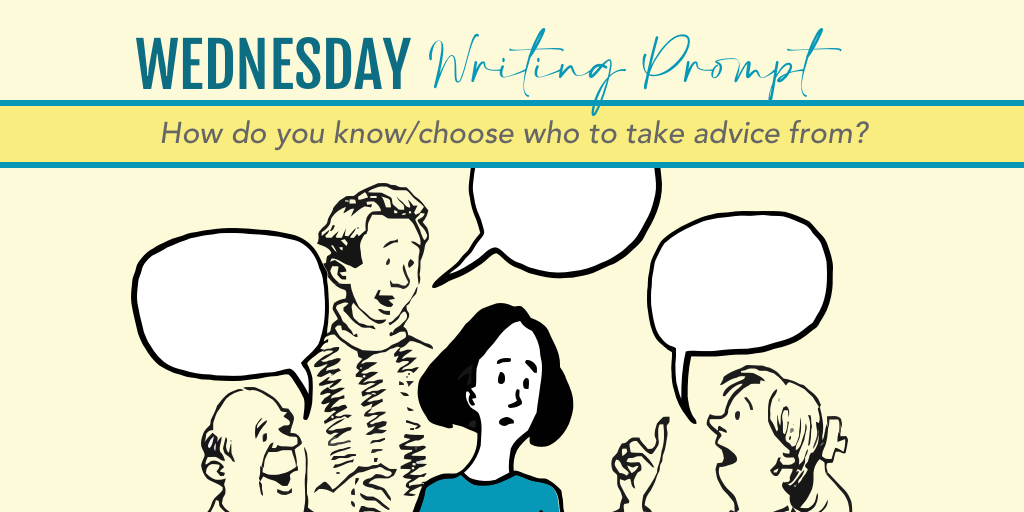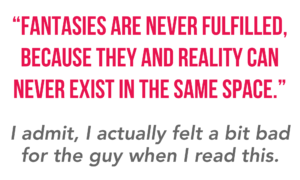Last week’s Wednesday Writing Prompt was about taking advice from someone in the lifestyle, what factors do you use to determine their expertise? Time in the community? Length of relationship? Something else?
Someone had asked this question to me, wondering how they would know who to trust, and it got me thinking.
After all, none of those things are perfect indicators.
Time in the community: I know people who have been in the kink/BDSM lifestyle for decades who I think are plain foolish in many of their antics, and some who joined only a few years back, who really took to it, and got serious.
Length of relationship: Years ago, I was challenged by someone on a writing. They said they don’t take advice from anyone who had not been in their current relationship more than 10 years. I had not. In fact, I still haven’t. We’re celebrating 8 this year.
But it got me thinking: Does longevity mean something? Sure, in some ways it does.
In others, though…like the previous example of time in the community, not so much. I’ve known people in decades-long relationships who are miserable and bitter towards their partners. Would they still make for good advice-givers?
I think not.
I’ve been in my romantic relationship nearly 8 years. I’ve had others at the same time with my poly tribe, spanning 7, 6, and 4 years, respectively. We are happy, loving, considerate, and able to communicate.
I don’t say this to suggest I’m the be-all-end-all. I’m not. However, I’d listen to someone like me before I’d listen to someone who seemed to be failing at the “happy” part of a a “long, happy relationship.”
And something else.
That is less solid. It could be anything. Do I like the way they look? Well, maybe I should listen to them about looking a particular way.
Or not.
After all, what applies to one person may not apply to me and vice-versa. YMMV, after all.
I think more than anything who I listen to boils down to a few things, all working harmoniously and in-blance:
1.Does what they are saying make possible sense, based on what I know about the lifestyle and human nature (from years of interest and study)?
This is the biggest one. Because if not, I will simply move on. I don’t reject the idea. I just don’t pay it much more attention until it’s presented in a way that makes some sort of sense to me.
2.Do they seem to share my values?
This applies in MOST cases, but not all. I often like to look up opposing values and learn from them. However, most of the things I value also apply to my lifestyle, so I have a tendency to look to those who live those values as well.
3.Do they engage in dialog with others well?
Being able to interact with others who are asking questions, providing commentary, or opposing them matters to me. Because to me, it’s not just the thought itself, but the quality of the mind and person who created the thought.
The thing is, a great idea may come from someone I loathe. And who is a shitty person, and who can’t really think their way out of a wet paper bag.
And I’m always on the lookout for those.
Because regardless of where it comes from, a good idea or thought is always welcome.
Overall, though, I feel that taking advice from someone—anyone—is more about knowing yourself and what resonates with you AND in trying to be objective and learn more about the topic through as many qualified sources as possible, then finding the path for you.
Because really, when it comes down to it, kink does not have “licensed professionals,” and even if it did, some would disagree with others.
(Look at the current situations we find ourselves in regarding medical professionals on the topic of weight loss, for example, and the many different viewpoints.)
I do think knowing how to think critically and having an open mind help. Here are a few tools I’ve used to stretch my own mind in various directions:









